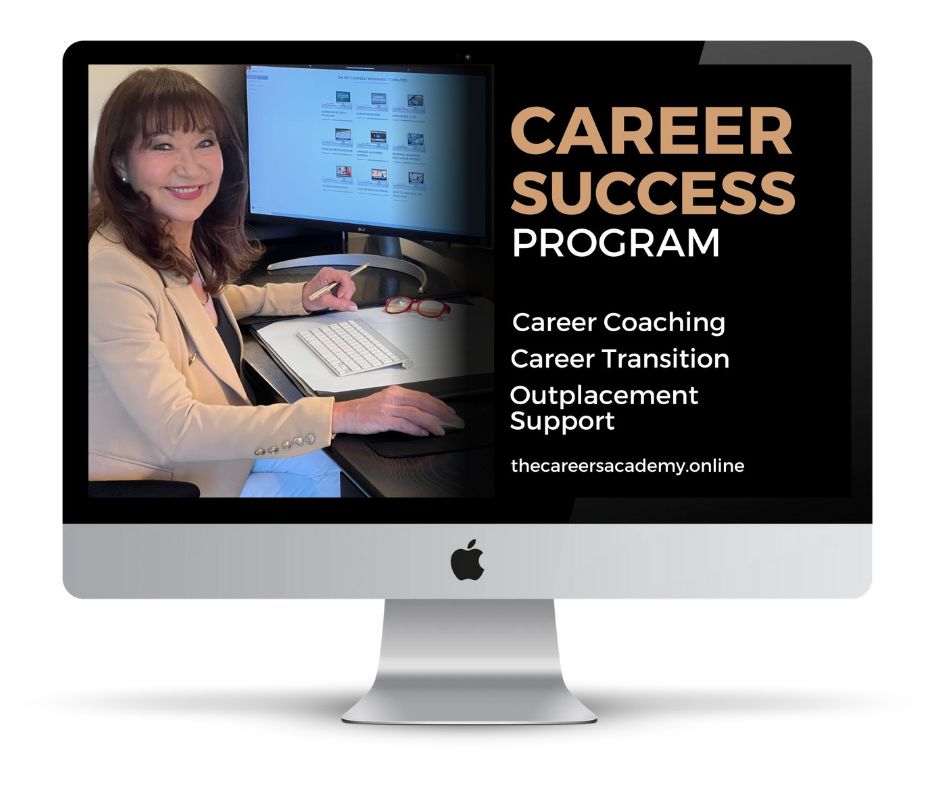
If you DON’T love your job. Is that a bad thing?
Perhaps it is OK not to love your job. There is so much focus on following your passion and purpose that I believe that many of us have forgotten that people work to earn money in order to pay their bills.
Of course it’s important to enjoy what you do, but if you don’t feel PASSION for your work that does not make you less worthy as an employee than someone who displays great passion for their job function, or industry, or company.
Everyone has a motivator and at different times in your life you may find that what motivates you changes.

In my early career, after graduating from Uni, and joining a PR firm, my motivations were, on the surface, very different from what my motivations are now.
I was focused having fun with the people I worked with and delighted in receiving my pay check every month because it meant that I was no longer dependent upon my mother (my father died when I was 11 so my mother was very careful with her money and it was an incredible feeling to be able to give her 1/3 of my salary each month to help pay the bills).
Did I love my job? I did not know what my passion nor purpose was, I was doing my job. And I did a very good job and was promoted within a few months which was very satisfying.
However, SOMETHING was not quite right and I did not feel much meaning in what I was doing.
I resigned as I felt a misalignment of values – not with the company, not the people, nor my boss who was very supportive. I felt a misalignment with the values of a corporate client who’s products I was assigned to promote.
Fast forward many years and I now know exactly WHY I had that niggly feeling and what that ‘something‘ was.
That was the reason why I did not love my job. I was not fulfilling my Career Anchor. And I now know that whatever our Career Anchor is, it’s okay – there is not one anchor that is better than another.
So, this is blog post is the result of an interesting article I read in the Weekend Australian entitled “Why Passionate Staff May Be Bad for the Office Culture” and, wanting to read more, I clicked through the links and voilà, I found this excellent article by Winnie Jiang, Assistant Professor of Organisational Behaviour at INSEAD, that inspired today’s newsletter:
‘Your Most Passionate Employees May Not Be Your Top Performers‘.
Below I add my take on what was written, along with some of suggestions as a career coach. Please feel free to comment, disagree, add to what I’ve written and discuss. That’s what this newsletter is for; to prompt you to think about your own career and also for me to learn from you, the reader.
The Power of Career Anchors: Understanding Motivation and Success
In today’s professional landscape, finding personal fulfilment and a sense of purpose in our work has become highly valued.
Employees who align their careers with a calling or a cause often experience greater satisfaction and success. (And may lead them to believe that their work has greater moral significance than others).
However, recent research challenges the assumption that passionate employees are inherently better performers.
Instead, their success can be attributed to the biases of managers who perceive their behaviours as indicative of high performance.
It is important that both managers and professionals recognise that each individual has a different ‘carrot’ (Career Anchor), and what motivates on person does not make them better or worse that another with different motivations.
Understanding Career Anchors
Career Anchors were identified by Edgar Schein, who was the Society of Sloan Fellows professor of management emeritus at MIT Sloan.
Schein’s theory is that everyone has a “dominant career anchor” and that by identifying your particular career anchor, you can determine the careers and roles that will provide the most satisfaction. His ideas involved people’s values and their career choices:
- What motivates someone to work?
- What central values drive one’s career?
- How do employees want to be managed or rewarded?
The answers to these questions determine a person’s career anchors.
So what are the Eight Career Anchors identified by Edgar Schein’s extensive research?
- General Management: Some of us are motivated by the opportunity to lead and manage teams, making strategic decisions, and driving organisational success.
- Technical/Functional Orientation: Other people find fulfilment in becoming experts in a specific field or skill set, focusing on honing their expertise and contributing specialised knowledge.
- Autonomy: For individuals driven by autonomy, the ability to work independently, make decisions, and have control over their work is paramount.
- Dedication to a Cause or Service: This career anchor revolves around making a meaningful impact and contributing to a cause or service that aligns with personal values and beliefs. (Note: this is my anchor and explains why I had a visceral reaction to working with the corporate client I was assigned to in my early days. They produced products which required cruel animal testing. And the products were for a superficial use.)
- Entrepreneurial/Creativity: Those with this anchor are motivated by the opportunity to innovate, create, and build new ventures or ideas. And are always looking for ways to innovate and do something a little different … or better … or bigger!
- Pure Challenge: The desire for constant intellectual stimulation, problem-solving, and tackling complex challenges drives professionals with this anchor. These challenges can be cerebral or physical – and the drive is constant.
- Lifestyle: Prioritising work-life balance, flexibility, and personal well-being is the core focus for individuals driven by the lifestyle anchor. I’ve found this to be stronger after Covid as so many people, during lockdowns, reassessed what they find most meaningful and began to question what they thought was true for them pre-Covid.
- Security: Some professionals value stability, job security, and a sense of financial well-being, and rather than an anchor to be taken lightly, the Security anchor makes them highly dedicated and reliable employees who want a stable job.
Key Takeaways for All Professionals
- Diverse Anchors, Equal Value: No career anchor is better or superior to another. Each anchor represents a different source of motivation, and individuals should recognise and honour their own unique career anchor. And managers, once they understand what anchors each team member, will be able to lead them with greater clarity.
- Bias Towards Passionate Employees: Managers may perceive passionate employees, who align their work with a calling, as high performers. This bias can lead to preferential treatment, inadvertently overlooking the contributions of job-oriented team members. Some people work to live, others live for their work – and this does not mean that one preference makes someone less able to perform at a high level and produce excellent work worthy of note and possible promotion.
- Performance vs. Passion: Being passionate about your work does not guarantee that your performance will be superior. (Sorry about that!) While passionate employees may demonstrate dedication and enthusiasm, and a high performance level, it’s important avoid an idealism that may hinder success (controversial, I know, so your thoughts are welcome!)
- Importance of Balanced Teams: Organisations benefit from a mix of calling-oriented and job-oriented employees. It may be felt that calling-oriented members fill the work environment with energy and purpose, while job-oriented members provide a grounding and focus on getting the job done.
- Focus on Output and Results: Managers must evaluate employees based on their output and results not solely on their sense of passion or calling. The impact and value each individual creates should be the primary metrics of success. And to that end, professionals must be sure to identify their accomplishments, include them in their regularly updated resumés, and speak about those tangible results in performance reviews to be noticed, remembered and appreciated.
What you can do next
1. Identify Your Career Anchor: Reflect on your core motivation and understand which career anchor resonates with you the most. Embracing and understanding your career anchor can help guide your decision-making and foster career satisfaction.
2. Recognise the Value of All Anchors: Appreciate the diversity of career anchors within your organisation. Take the time to observe and discuss what drives you and what drives your team members. Respect and collaborate with your colleagues who are motivated by different anchors, as their perspectives can enhance the overall success of your team.
3. Balance Passion and Performance: While being passionate about your work is an important element of your career, focus on achieving tangible results and delivering high-quality performance. Merge your dedication to a cause or service by honing your skills and effectiveness to maximise your impact.
4. Communicate Your Commitment: Open communication is essential in every organisation and within every role. Don’t be afraid to ask for a career conversation with your manager. If you have a job-oriented anchor, make sure to highlight your commitment to your work and showcase your exceptional performance. This can help ensure your contributions are recognised and valued by both colleagues and managers.
I hope you enjoyed this read (I know it was a long one!) I find that my clients find great benefit in understanding their true Career Anchors. By following your Career Anchor you can ensure greater career success and satisfaction.
And remember, it’s OK not to love you job itself. Besides your job function there will be many other aspects of your role, the people you work with, your manager, your industry, the company and more that motivates you. And that’s OK!
If you want career support have a look at my Career Success Program – this is my comprehensive Outplacement Program for businesses and for individuals.
I’ve created this unique blend of ‘on-demand’ coaching support because I’m on a mission to make careers guidance accessible and affordable to ALL who need it!
. . . . . . . . . . . . . . . . . . . . . . . . . . . . . .
For professional career transition and outplacement support for your business or for you personally, explore my Career Success Program which provides all any professional needs to make a successful transition. Details are here: www.thecareersacademy.online


